A Nation Holds Its Breath Electoral Disputes and Economic Uncertainties Grip Ghana – breaking news i
- A Nation Holds Its Breath: Electoral Disputes and Economic Uncertainties Grip Ghana – breaking news in ghana today – Analysts Predict Period of Intense Scrutiny and Potential Instability.
- The Disputed Election Results
- Legal Challenges and Court Proceedings
- The Role of International Observers
- Economic Anxieties and Rising Inflation
- Impact on Key Industries
- Social Unrest and Protests
- Concerns About Human Rights and Civil Liberties
- Potential Scenarios and Future Outlook
- Harnessing Local Expertise and Diplomatic Efforts
A Nation Holds Its Breath: Electoral Disputes and Economic Uncertainties Grip Ghana – breaking news in ghana today – Analysts Predict Period of Intense Scrutiny and Potential Instability.
Breaking news in ghana today centers around escalating tensions following the recent presidential election. Disputed results and allegations of irregularities have sparked widespread protests and calls for independent investigations. This period of uncertainty is coinciding with increasing economic anxieties, creating a volatile atmosphere within the nation. International observers are closely monitoring the situation, urging all parties to engage in peaceful dialogue and respect the democratic process. The stability of Ghana, a key regional player, hangs in the balance.
The Disputed Election Results
The core of the current unrest stems from the fiercely contested presidential election. Initial results showed a narrow victory for the incumbent president, but the opposition party immediately rejected the outcome, citing evidence of vote rigging and manipulation. These claims have been amplified by social media, fueling public discontent and triggering demonstrations across the country. The electoral commission maintains the integrity of the process, further deepening the divide.
The opposition party has presented what they claim are statistical anomalies and discrepancies in the vote counts from several key regions. They are demanding a recount and an independent audit of the electoral roll. Independent analysts suggest the margin of victory is close enough to warrant further scrutiny, but conclusive evidence of widespread fraud has yet to emerge, creating a climate of mistrust.
Legal Challenges and Court Proceedings
The opposition party has filed a formal petition with the Supreme Court, challenging the validity of the election results. This legal challenge is expected to be a protracted and complex process, potentially lasting several weeks or months. The court proceedings will involve the examination of evidence, witness testimonies, and expert analysis. Legal experts predict a high-stakes battle, with far-reaching implications for Ghana’s democratic institutions.
The government has expressed confidence that the legal system will uphold the integrity of the election and validate the President’s victory. High-profile lawyers have been engaged on both sides, intensifying the public’s focus on the unfolding legal drama. This uncertainty is also impacting investor confidence, as businesses hesitate to make significant commitments amidst the political instability.
The Role of International Observers
International election observer missions, including those from the African Union and the United Nations, have issued statements expressing concern about the post-election situation. They are calling for transparency and accountability in the investigation of allegations of irregularities. Their presence and recommendations are considered crucial for building trust and ensuring a fair and peaceful resolution. However, some observers have been criticized for perceived bias or insufficient engagement with local stakeholders.
Several Western governments have also issued statements urging all parties to respect the rule of law and engage in constructive dialogue. Financial assistance and development programs may be contingent on a peaceful transfer of power and the maintenance of democratic principles. The influx of international pressure serves to highlight the importance of Ghana’s stability in the West African region.
Economic Anxieties and Rising Inflation
The political turmoil is coinciding with growing economic challenges. Ghana’s currency, the Cedi, has depreciated significantly in recent months, driving up the cost of imports and fueling inflation. The rising cost of living is disproportionately affecting vulnerable populations, leading to increased social unrest. The government implemented austerity measures, which are met with resistance.
The falling Cedi rate hits essential sectors causing import bills to skyrocket. This has increased public debt and reduced national income. Ghana’s reliance on commodity exports means it is highly sensitive to global price fluctuations. These recent hardships have brought a level of unrest, currently mirroring the political climate.
Impact on Key Industries
Several key industries in Ghana are being negatively impacted by the current economic situation. The cocoa sector, a major source of foreign exchange, is facing declining prices and reduced yields. The tourism industry is also suffering from a decline in visitor numbers, due to safety concerns and travel restrictions. Instability is already beginning to impact the nation’s ability to access international credit, reducing opportunities for investment.
This downturn poses a significant threat to the nation’s employment rates. The informal sector, a significant part of the economy is likely to suffer, increasing social vulnerability and exacerbating the impacts of the broader unrest. Government officials are working on strategies to mitigate these challenges, but the severity of the situation is testing their capabilities.
| Cocoa | Declining prices, reduced yields, decreased export revenue |
| Tourism | Decline in visitor numbers, reduced revenue, decreased employment |
| Manufacturing | Increased import costs, reduced demand, decreased production |
| Banking | Increased non-performing loans, reduced lending, economic instability |
Social Unrest and Protests
The disputed election and economic hardship have led to widespread social unrest. Protests have erupted in several cities, with demonstrators demanding a recount of the vote and calling for the government to address the economic crisis. The protests have been largely peaceful, but there have been reports of clashes with police. The tensions are heightened by the spread of misinformation, leading to distrust.
The youth, disproportionately affected by unemployment and economic uncertainty, are at the forefront of these protests. Social media has become a crucial tool for organizing and mobilizing demonstrators. The government has responded by deploying security forces to maintain order, and restricting access to social media platforms in some instances, raising concerns about freedom of expression.
Concerns About Human Rights and Civil Liberties
Human rights organizations have expressed concern about the use of force by security forces during the protests. There have been reports of excessive force and arbitrary arrests. Civil liberties groups are warning against any attempts to suppress dissent or restrict freedom of assembly. The government has pledged to investigate all allegations of misconduct, but concerns persist.
The restrictions on social media access have also drawn criticism. Some argue the act limits citizens’ ability to share information & to exercise fundamental rights. Independent media outlets are closely monitoring the situation, providing reporting of any potential breaches of fundamental rights. The situation is particularly sensitive, triggering concerns about democratic principles.
- Increased political polarization
- Erosion of public trust in institutions
- Economic instability
- Social unrest
- Potential for violence
Potential Scenarios and Future Outlook
The future of Ghana remains uncertain. Several scenarios are possible, ranging from a peaceful resolution through the courts to a prolonged period of instability. The outcome will depend on the actions of key players – the government, the opposition party, the judiciary, and the international community. The following represent a number of scenarios rooted in the current outlook.
A successful legal challenge could lead to a rerun of the election, potentially resolving the political crisis. However, a court ruling in favor of the incumbent president could further escalate tensions and lead to protracted unrest. The economic situation is likely to worsen in the short term unless significant reforms are implemented. The recent downturn will have considerable economic impacts.
Harnessing Local Expertise and Diplomatic Efforts
To prevent further escalation, it’s imperative to prioritise dialogue, reconciliation, and inclusive governance. Local consultative meetings, involving leaders and communities will be decisive in ensuring effective peaceful measures. Additionally, diplomatic missions from the African Union is based on strong regional mediation skills.
Strengthening democratic institutions, promoting transparency, and addressing socio-economic inequalities are essential for long-term stability. Ghana has a history of democratic rule, but those foundations are now tested. Assuming collaborative governance, Ghana may find stability in the coming months with mitigated risks.
- Continued legal challenges and court proceedings
- Ongoing social unrest and protests
- Escalating economic challenges and potential recession
- Increased international pressure and mediation efforts
- Possible intervention by regional or international bodies
The current situation in Ghana is a complex interplay of political, economic, and social factors. The outcome will have significant implications not only for the nation itself, but for the broader stability of the West African region. A commitment to democratic values, inclusive governance, and constructive dialogue is essential for navigating this challenging period.


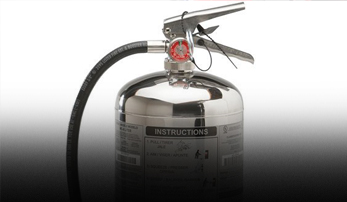


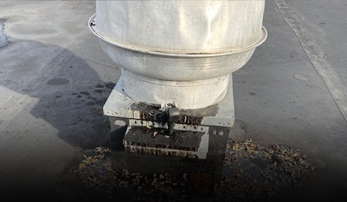
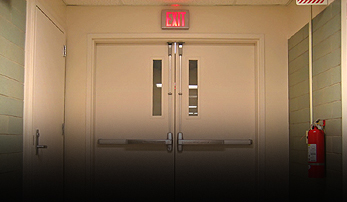
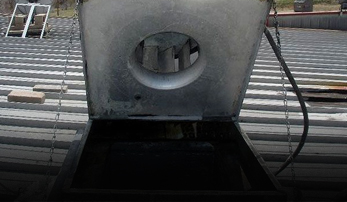
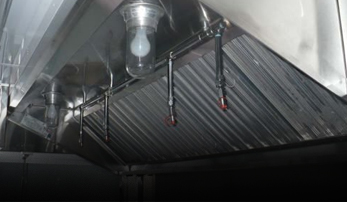
Recent Comments